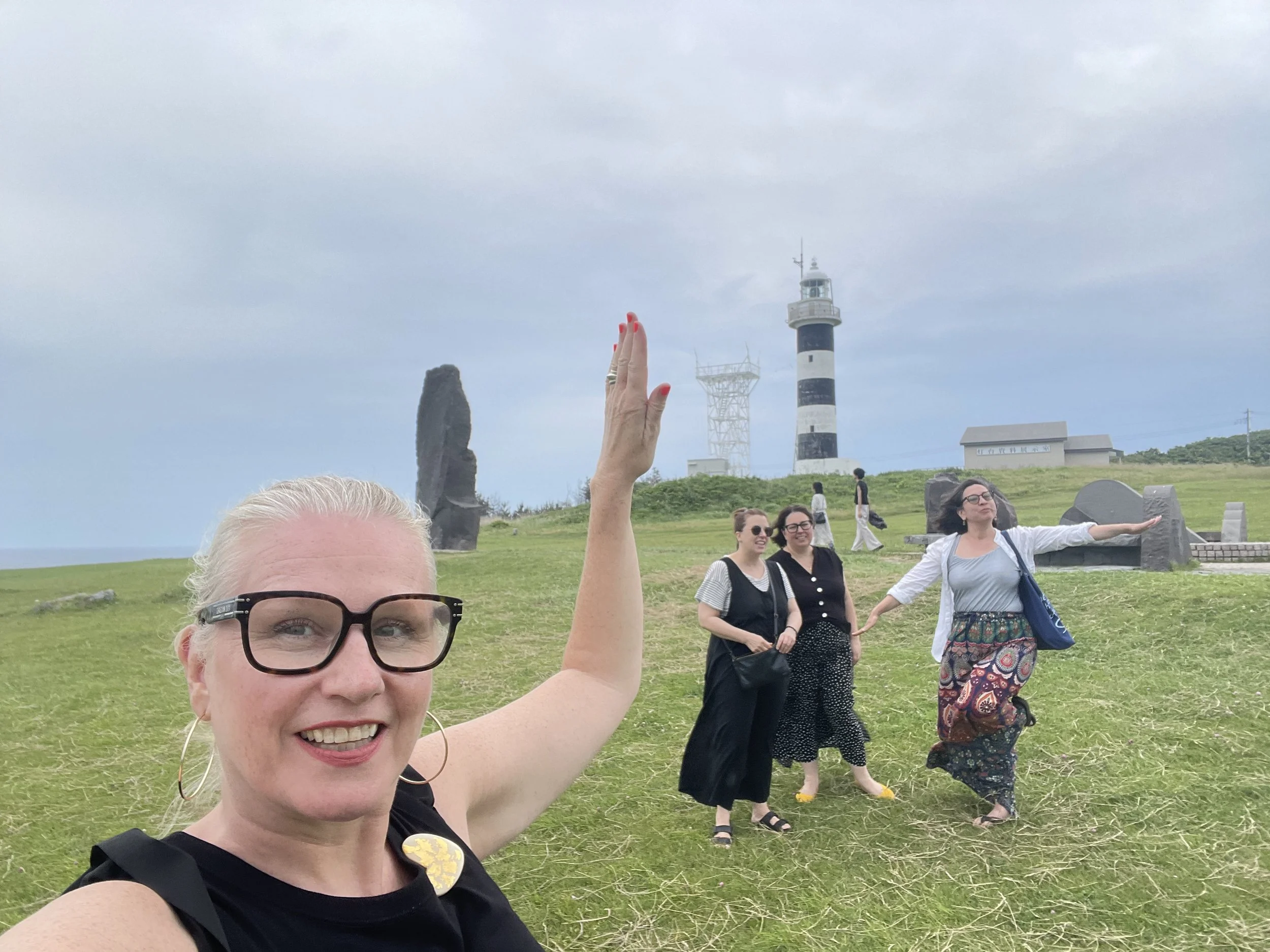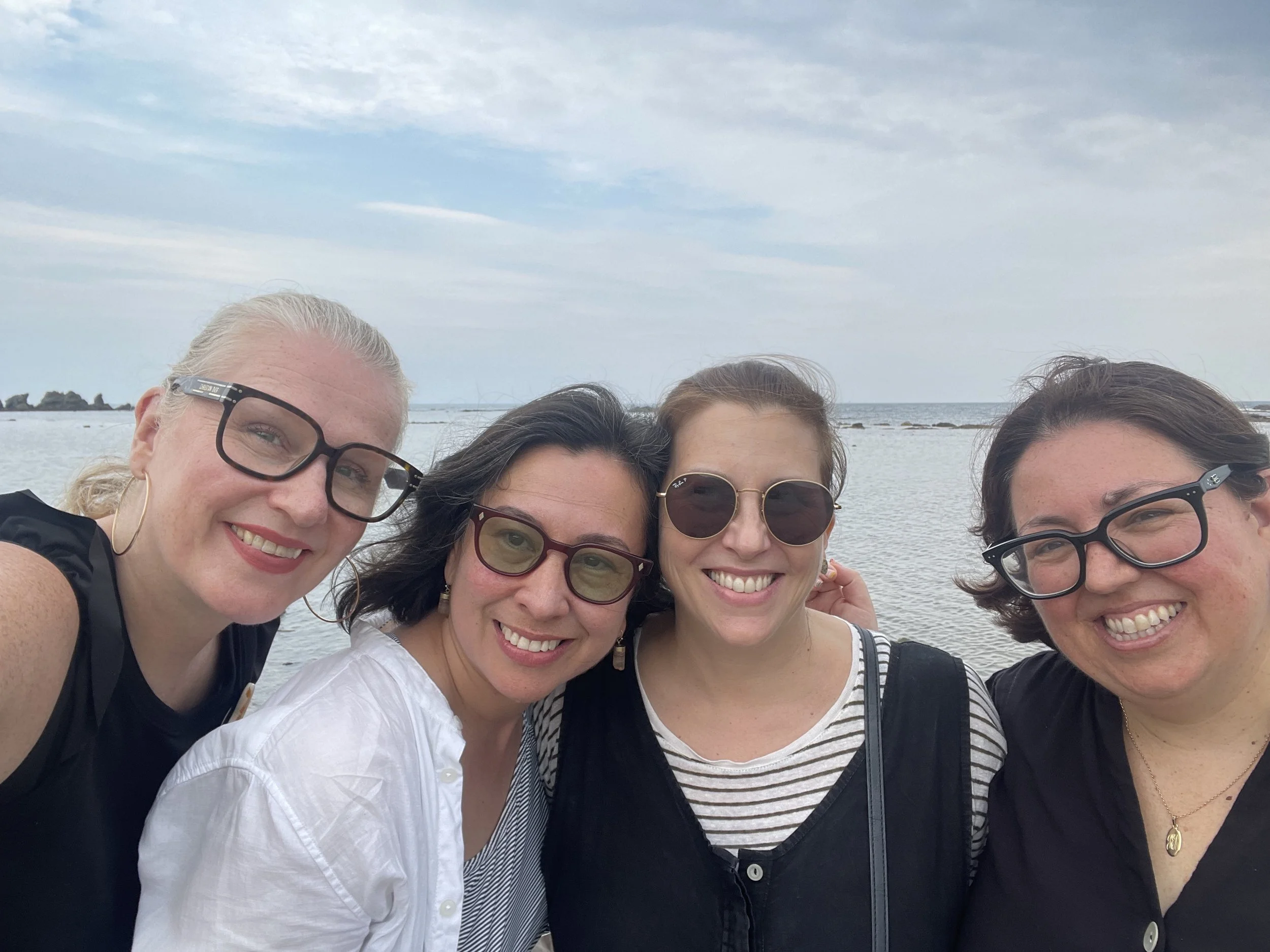Where on Earth do People Grieve?
I was at a party a few years ago. Out of the corner of my eye, I could see a group of friends chatting on the sofa about their recent losses. They spoke pragmatically, with the quintessential ‘stiff upper lip’ and spoke of ‘moving on’ ‘just getting over it and getting on with it’ and ‘it’s just part of life isn’t it?’. I thought - that’s right.
And yet…
In the same party I ended up in the corner having a one to one with a friend I hadn’t seen for ages. They told me how in the past year their boyfriend had had a stroke, and thankfully recovered only for their sister in law to die 8 months later in an accident. They were frank, tearful and apologetic. No I said; this is my designated role in the village, I receive this information and I am able to hold it.
Similarly in the train station one week, walking home from a meeting, a coworker, who had been waxing lyrical earlier about not dwelling on a recent loss, broke away from the main group with me and told me how confused they were about their loss - how confusing it is to be both OK and not OK at the same time. How the grief creeps up on them and suddenly they are in tears.
Grief is like that. It’s a whole frequency. We can try to jam it, but it will find a way. It is unseen, interfering with our current programme, creating static. Our human antennae will be picking it up. Just as our social antennae will be picking up that there are many places where our GRIEF WILL BE MARGINALISED. And my goodness, it is best to be mindful of that socially. And of course, in any given group, team, system or collective, grief is present. It will visit all of us eventually.
But where does it go?
Nowhere. That’s where.
Gretchen Miura my partner in the Lighthouse Grief Circle knows this all too well.
Her brother was taken aged 17 when she was 5. Suddenly, tragically.
Her parents were advised by a doctor not to talk to her about Chris, she was young, she would neither remember nor understand. She was young. She’d get over it. They were all doing their best.
They were also wrong.
For almost 40 years Gretchen carried the memory of her brother, her feelings about him, and her deep, real relationship with him locked deep inside - a secret. A forbidden topic. Until she began to unfurl her grief, talk about Chris and pull her grief in from the margins to where she and her family could see it. It was a brutal and beautiful unfolding that cracked Gretchen open, somehow magically brought her to me, and also cracked something open in me.
Where do people go? Where do the people who are marginalising their grief go to give it space, and time, and room to breathe and be? When we live in a world where the messaging is to move on. Fast. Or you’re too much, too emotional, too sensitive, if you are mourning the loss of a loved one beyond the imagined norms. Where you could be in social jeopardy for not joining in with the bypass. Or you could genuinely be in danger of losing your job if you can’t hold things together, yet you also need, or could certainly benefit from a secret place where your grief gets a space to live without judgement, exclusion or expectation.
“You’ve just got to get on with it haven’t you?”
“Noone wants to listen to me going on about my loved one.”
“I can tell people have stopped being interested…”
“After 6 months people expect you to move on…”
“The second year is worse but I should be over it by now …”
“There’s nothing worse than people going on about there grief …”
The is paradox is, that when I am in rooms with people, they suddenly and quickly disclose. Apologise for dumpling on me (no it’s fine, someone in the collective holds this role, village listener - it’s me)
But where else can this happen?
I’ll tell you where - The Lighthouse Circle Grief Support Group.
In there we make space for everything - laughter, tears, rage, silence, gentleness, spikiness, tenderness, toughness, bewilderment, certainty, reality, possibility, relief, happiness, control, chaos, madness, sanity; all of it.
Is it awkward?
Maybe, but there are always lifetime members in the group, who are used to talking about their grief and receiving other people’s. They are generous and savvy. There are always first-time members in the group, and you are given the option to participate as much or as little as you wish. We have people joining on the train, just listening in the background, adding the odd comment, we have people who gently weep throughout and say nothing, we have people who jump straight in and tell their story, then the next week more of their story. There are people who realise there is a story behind the story, there are people who rage and download and we are all there to hold it - Gretchen and I are expert in this regard at setting up containers that can gently hold people in whatever way they show up, and our Lighthouse Circle follows suit.
I am amazed at their ability. Their generosity.
Having a place to express grief is such a relief for the people in our Lighthouse as they tell us what’s happening and are met with across-the-board compassion, acceptance and belief. Nothing is too much or too little to bring to us. Our leading room rule, beyond the secrecy is NO ADVICE. You do not know how much this changes a space until you experience the pure potential that arises from not having anyone jump in with their opinion, advice or to make you feel better. Just to offer love, support and witness. If this sounds soppy or weak to you - you probably need Lighthouse Circle. It’s the strongest, bravest place I’ve ever been. The most human, the most honest with the least bullshit and weirdly - the least people-pleasing or fawning.
Resourcing and taking refuge is important in order to truly tackle grief head-on. Did I mention the courage? There’s a reason the list above exists - it’s absolutely essential to have a grief mask out in public because people DO NOT WANT TO LOOK AT GRIEF. So in order to really look it in the eye and bring it to our Lighthouse table, being resourced is a must.
Difficult emotions come up - some surprising; confusion being one of them. Once resourced, we can begin to look at the full range of difficult emotions that come up. There are so many - emotional shades and tones we didn’t even know existed before. Grief has a life and a spectrum of its own. Once you are on it, it’s case of navigating it - and that’s what we are there for. A Lighthouse. Navigation.
Grief is not a discrete event. It come with collateral. Did you know there are more than 7 different types of grief? And secondary losses. You may discover things among the effects of your person that layer on more grief. Your relationships with everyone around you may adjust. Money matters change. Taboo things surface, like relief or how life is easier in the absence of a caring role. In your caring role, you may also not only be dealing with the the loss itself, but after that, the trauma that came with watching the deterioration of a person; their body. Living grief; if a person recovered, you may carry the grief of the whole event. Collective grief - an event, like 3/11 that ripples through an entire group. Grief is multi-layered; there is much research about it - we share some of that.
Is it even possible to have a relationship with the person who has died? We explore this idea. For some, yes; or others, no. My Grandma chats all day with her husband. For some people this is not something they wish to or are able to access. That’s fine. In Lighthouse we offer the space to explore this possibility or to talk about how that is not possible. Or how the relationship changes. Often people talk about their dreams and how people appear in their dreams changes throughout the grief process. I have no expectations on this - only to give the offer of redefining your relationship. It’s an option.
Finally - integrating grief into your daily life. Grief arrives and stays. It doesn’t necessarily shrink, but life grows around it. It morphs and changes perhaps, and sometimes returns and revisits us with the fierce heat of those early days, even when we are not expecting it. We explore how grief integrated looks for each person - offering the lush content, contemplations and inquiry of the Lighthouse to shine light on how we can bring and welcome our grief in, without marginalisation. Low and behold, our members report being able to meet other people’s grief with curiosity too - one person integrated their Mother’s marginalised grief for a loved one, and opened such possibilities for their living relationship.
Grief Circle gives you the language to talk about grief - a grief literacy, that you would never have otherwise especially if you want to retain a stiff upper lip at all costs1 Our members become lighthouses themselves, for their families, for their friends, for themselves. It is magic, but it is also a practical practice of science, psychology and spirit.
We start Tuesday 22nd July at Japan time 8pm and Thursday 24th July Japan time 9am.
These times work for UK, US, China and Australia too as well as many different time zones.
You can sign up right up until the start time - we know that it is a risky and difficult decision to make to join us and will often be made last minute. You join a courageous collective of people who are new, returning and re-returning to the Lighthouse.




